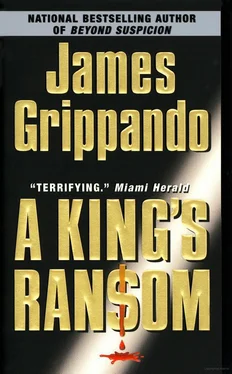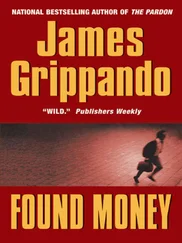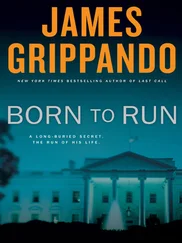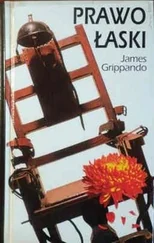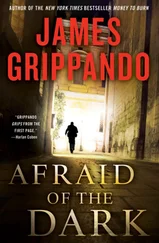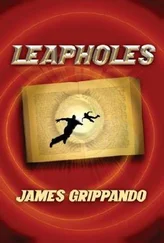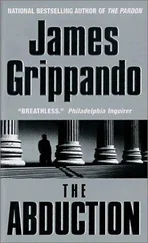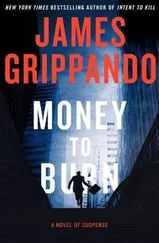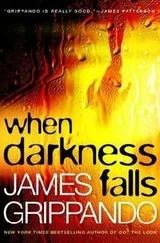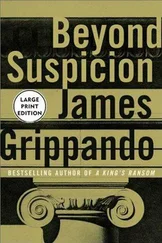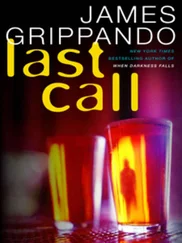James Grippando - A King's ransom
Здесь есть возможность читать онлайн «James Grippando - A King's ransom» весь текст электронной книги совершенно бесплатно (целиком полную версию без сокращений). В некоторых случаях можно слушать аудио, скачать через торрент в формате fb2 и присутствует краткое содержание. Жанр: Триллер, на английском языке. Описание произведения, (предисловие) а так же отзывы посетителей доступны на портале библиотеки ЛибКат.
- Название:A King's ransom
- Автор:
- Жанр:
- Год:неизвестен
- ISBN:нет данных
- Рейтинг книги:4 / 5. Голосов: 1
-
Избранное:Добавить в избранное
- Отзывы:
-
Ваша оценка:
- 80
- 1
- 2
- 3
- 4
- 5
A King's ransom: краткое содержание, описание и аннотация
Предлагаем к чтению аннотацию, описание, краткое содержание или предисловие (зависит от того, что написал сам автор книги «A King's ransom»). Если вы не нашли необходимую информацию о книге — напишите в комментариях, мы постараемся отыскать её.
A King's ransom — читать онлайн бесплатно полную книгу (весь текст) целиком
Ниже представлен текст книги, разбитый по страницам. Система сохранения места последней прочитанной страницы, позволяет с удобством читать онлайн бесплатно книгу «A King's ransom», без необходимости каждый раз заново искать на чём Вы остановились. Поставьте закладку, и сможете в любой момент перейти на страницу, на которой закончили чтение.
Интервал:
Закладка:
“If we’re going to bring my father home, the first thing I’d better do is maybe find out who he is.”
“Where do you plan to do that?”
She seemed amused, but I was completely serious. “I’ll start in Nicaragua.”
PART THREE
38
It looked dead. Perfectly still, milky green, no sign of life, Lake Managua stretched for miles below me. As the commercial jet turned to make its final descent, I noticed a lone fishing boat below, no lines cast. I doubted that anything edible could be pulled from these waters.
I’d done a little homework for my trip, enough to know that Nicaragua was the largest country in Central America and one of the poorest. Tourism was virtually nonexistent, though extreme hikers liked to explore its extensive rain forests in the north-central mountains and along the eastern coast. Ninety percent of the population lived in the Pacific lowlands to the west, mainly in the capital city of Managua, tens of thousands surviving in open-air, tin-roofed shacks like the ones around Sandino International Airport. The lake was the repository of all things to be expected from a city with too many people and too little infrastructure.
My flight was an hour late. We taxied down the runway, past the old machine-gun stands that had defended the airport during the bloody Contra-Sandinista war of another decade. Nicaragua was at peace now, but with my father kidnapped by so-called revolutionaries in Colombia, I had to wonder what those former Contras were doing these days with all the leftover guns and ammunition that my own country had so freely provided.
“ Bienvenido ,” said the customs agent. “Welcome.” I passed without a search. No one seemed to care what I was bringing into the country. It was what people took out that raised eyebrows.
“Senor Rey?”
I turned to see a young man holding a cardboard sign with my name on it. “I’m your driver,” he said in English.
My first instinct was to thank him and hand him my bag, but I remembered Alex’s words of caution in Colombia. I couldn’t take anything for granted. “Who sent you?”
“Senor Guillermo Cruz.”
“What’s your name?”
“Ignacio.”
That was the name Guillermo had given to me in the previous night’s telephone conversation. Satisfied, I followed Ignacio outside and loaded my bags into the new Mitsubishi Montero waiting at the curb. Ignacio drove us to downtown Managua.
Last night I’d told Guillermo very little about the purpose of my visit. I’d simply said that some business and personal matters needed to be hashed out. He graciously invited me to stay as long as I wanted.
“Hold on!” said Ignacio as he slammed the brakes. A herd of goats crossed the busy street in front of us. A group of boys was playing baseball in the wide median, and the goats had been eating the grass in left field before being shooed away.
Ignacio put the SUV in gear, then stopped short again. This time it was an old guy riding some three-wheeled contraption. A huge basket in front held two squealing hogs-big ones, larger than my old golden retriever. They were throttling each other in a futile effort to break free, their twisted legs protruding through the basket’s wire mesh. One was upside down, on its head. The shrill screeches made me want to jump out and slap the owner. Animal cruelty was something that really bothered me, but this wasn’t Coral Gables.
“Dinner,” said Ignacio.
This was my introduction to the nation’s capital and its bustling city center, to the extent it had one. The real heart of Managua had been leveled by a 1972 earthquake that had left six thousand dead, and the temporary shelters that had sprung up were still here. Shacks along the road sold everything from used tires to mattresses. Newer stores abutted vacant lots, crumbling old buildings, and other signs of a thirty-year-old disaster that had yet to be cleaned up. Shoeless kids with dirty faces and tattered clothes were at every intersection, hawking radios, cashews, cigarettes, steering wheels, live parrots in homemade cages, and anything else they could get their hands on. Skinny horses pulled rickety wooden carts laden with vegetables. The taxis were mostly dilapidated old Russian cars, probably from Cuba. If Times Square had its neon signs, Managua had its floppy, hand-painted banners, one after another stretched across the busy streets advertising events and products. Up ahead was the Palace of Justice, its walls bearing the work of Nicaragua’s extremely busy graffiti artists. The most popular image was that of Augusto Sandino, the assassinated revolutionary hero who, from beneath his broad-brimmed sombrero, seemed to survey the country from every available wall and lamppost. A few blocks past the palace, overlooking an urban field of rocks, weeds, and cardboard homes, was the famous black, three-story statue of the campesino with a machine gun over his shoulder.
“Have you met Senor Cruz before?” asked Ignacio.
“Only on the telephone. I honestly don’t know much about him, other than that he’s my father’s partner.”
“I see.”
“Is he a good man?”
“You mean Senor Cruz?
“Yes.”
He steered through the intersection, smiling at my question. “He’s my boss,” he said simply. I waited for more, but he left it at that.
We reached headquarters around three o’clock.
Just the word “headquarters” had me thinking that I was headed for an office building. Rey’s Seafood Company, however, was based in an old ranch-style house that had been converted to commercial use. Security bars covered the windows. Big red flowers brightened the tiny front lawn. Inside, I was greeted by a team of extremely friendly people, none of whom seemed to have any qualms about working a full day on a Saturday as a matter of course.
“So you’re the son of Senor Rey,” I heard about a dozen times. Invariably some expression of concern for my father followed.
“We have been praying to the Blessed Virgin every day,” said the receptionist. She was young and quite pretty. All the women here were young and pretty. I wondered if my father was in charge of hiring. For Mom’s sake, I assumed it was Guillermo.
“Is Guillermo here?” I asked.
“In back,” said Ignacio. “I’ll take you.”
We walked through another part of the old house that appeared to have been a garage at one time. A stack of cans filled with marine paint lined the hallway. The branded hide of a brown-and-white cow was draped on the other. We continued through one added-on room after another, somewhere well beyond the footprint of the original house. These were purely administrative offices, not the processing plant. The lab was in one room, where they tested small samples of products that were ready for export. Freezers were in the next room, chain-locked, of course, to keep the frozen shrimp from walking out the door. In the back was the employee kitchen, which smelled of beans and seafood. Finally we reached the end of the hallway. A crucifix was on the door.
“Senor Cruz is in the chapel.”
“The chapel?”
“Of course,” Ignacio said, as if every office had one. “He prays every day. The last few days, twice a day.”
“For my dad?”
“He wants it to stop raining on our shrimp farms near Honduras.” He seemed to catch himself, then added, “I’m sure he prays for your father, too.”
We were talking loud enough to be heard in the next room, and sure enough the door opened. Out walked Guillermo.
“Nick, good to see you.”
He gave me a hug, which seemed a bit too affectionate coming from a man I’d never met in person. He must have sensed my stiffness.
“I feel like I know you, I’ve heard so much about you from your old man.”
Читать дальшеИнтервал:
Закладка:
Похожие книги на «A King's ransom»
Представляем Вашему вниманию похожие книги на «A King's ransom» списком для выбора. Мы отобрали схожую по названию и смыслу литературу в надежде предоставить читателям больше вариантов отыскать новые, интересные, ещё непрочитанные произведения.
Обсуждение, отзывы о книге «A King's ransom» и просто собственные мнения читателей. Оставьте ваши комментарии, напишите, что Вы думаете о произведении, его смысле или главных героях. Укажите что конкретно понравилось, а что нет, и почему Вы так считаете.
